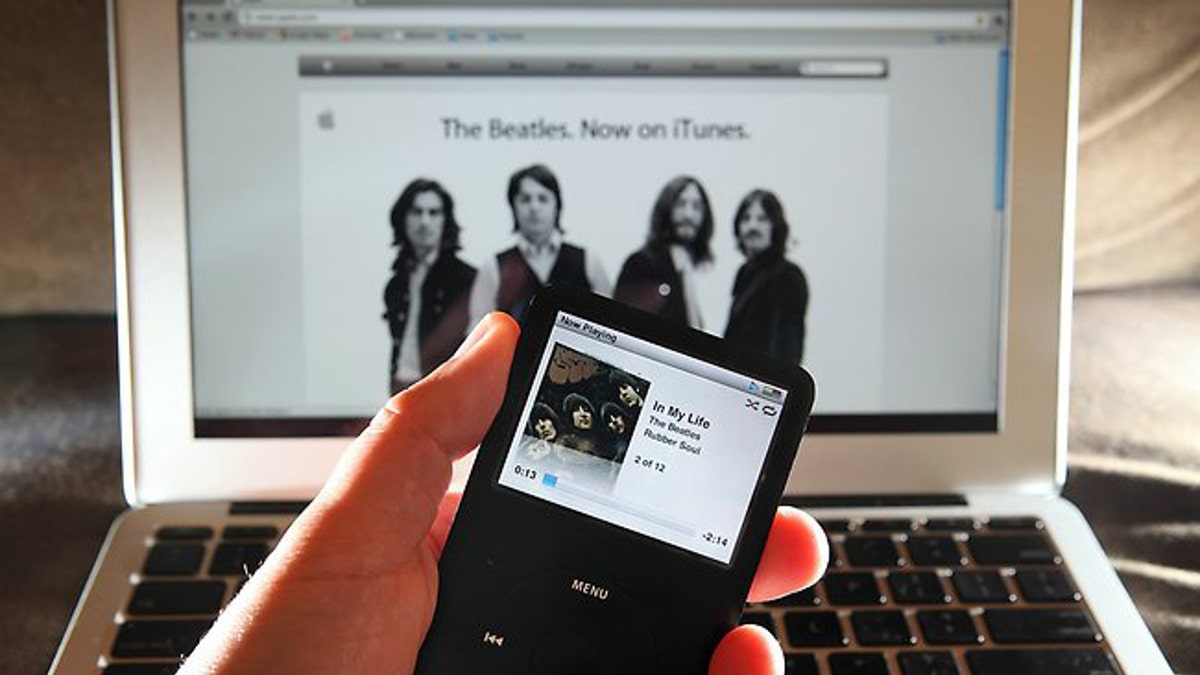
What happens to your iTunes collection after you die?
We accumulate a tremendous amount of digital content over a lifetime. So what happens to all of your online stuff when you die?
It's more difficult to bequeath a loved one your entire iTunes library than it is to leave your CD collection to them in a will.
Actually, unless you get control over your digital collections and social networking pages now, it will be very difficult for your loved ones to access all of your content once you're gone.
So what does happen to your data after you die? To quote Facebook, "it's complicated."
Facebook contains a feature that memorializes someone that has died by having a user select the "lost a loved one" feature. It even allows you to upload a photo of the deceased.
The social network also provides a form that allows people to report that a user has died, but it requires them to provide proof such as a death certificate, obituary or news story.
To close a Twitter account belonging to the deceased, the site requires an email or fax request to close the account. The person will be required to provide a death certificate, a notarized statement and government issued ID.
[pullquote]
Some sites like Amazon, Grooveshark and Foursquare, do not provide any information on how to close the account of deceased users.
iTunes is another gray area. Although there has been much speculation over whether you really own the content, or whether you license it for a certain period of time, there has been no substantial case law that can say either way.
The Website DeceasedAccount.com lists the policies of most of the major social networks and popular websites online. It's worth a visit so that you know exactly where you stand. But the easiest way to ensure your data goes where it ought to once you're gone is to set up a digital will and testament.
SecureSafe is one of the few companies set up with the specific purpose of giving people power over their own data once they die.
Andreas Jacob, the director of marketing and communications for SecureSafe told News Ltd that while most of our data may not be very important for the afterlife, there are certain documents and passwords that are very important.
"Ninety percent of my data may useless, but there's 10 percent that is of value that I want to give to my wife, to my kids, to my business partner, my family," he said.
For example, Jacob said his iTunes and Amazon accounts contain some prepaid money, which would be gone if his wife couldn't get access to his logon.
"Frequent flyer miles is another good example," he said.
Secure Safe works by letting users upload all their documents and passwords to their account, once it is set up and assign the content to beneficiaries. Then you decide who gets what in the event that you pass away. The site then provides you with an activator code which you can print out or email to somebody you trust instructing them to read the document and follow the instructions in the event of your death. This person then enters the code into Secure Safe's system which then gives them access to their digital inheritance.
But what happens if you're not really dead and this was all a terrible mistake?
Users can assign a waiting period that acts as a safe guard. How long the time period goes for is entirely up to the individual. When the inheritance is activated, the allegedly deceased person is contacted repeatedly by email and text message. If they are still alive, all they need to do is reply to the email or text and their data will remain secure. If the waiting period lapses, then you are considered dead and your inheritance will be released to the person or people of your choosing.
The service is free and lets you save up to 50 passwords. A premium service provides more storage safe and extra features such as two-step verification process that requires a pin as well as a password in order to activate the account and inheritance.
However Jacob said we shouldn't just be worried about Internet passwords and accounts What about your bank account, credit cards or frequent flyer miles?
"There are a lot of logons and login credentials that might be of value to my family such as email accounts, online banking," he said. "It might be the pin codes of my bank card, it might be the pin to my mobile phone or alarm codes.
"Some of these passwords just make it easier for my loved ones because they don't have to care about what happens to my bank account if the bank closes it down."
Read more tech news and reviews at News.com.au.








































